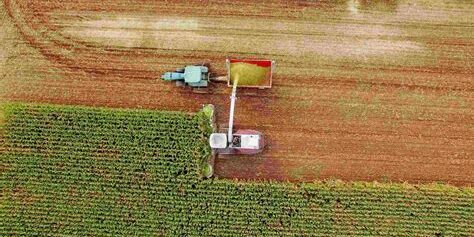Agriculture needs to be part of the vital solution to climate change.
Farmers have a special responsibility to protect carbon reserves already in our soils and vegetation. We know emissions from UK farms presently amount to 45.6 million tonnes of carbon dioxide (CO2) equivalent a year – about one tenth of UK GHG emissions. But in stark contrast to the rest of the economy only 10 per cent of this is CO2. Around 40% is nitrous dioxide (N2O) and 50% is methane (CH4).
The video recording below is from a talk given by Oliver Rubinstein, the National Farmers Union (NFU) County Adviser for Bedfordshire and Huntingdonshire at a Bedfordshire Climate Change Forum webinar in May 2021.
In the talk, Oliver talks about how food can be produced in ways that work closely with environmental concerns in mind, such as agroecology and organic systems to help us achieve zero carbon and restore nature.
His talk also details:
Some of the issues threatening British farming today:
- Concerns about food standards in post-Brexit trade deals. The NFU launched a petition on this last year, which you can still sign here. A recent article in Farming UK explains the concerns UK farmers have about competing with overseas imports.
- Challenges facing farmers due to climate change and extreme weather.
- Uncertainty due to delays with the UK Government’s Environment Bill and the way financial support will work for farming post-Brexit. The new system is to be based on ‘Environmental Land Management’ (ELM) schemes that will pay farmers public money for work to enhance the environment, with the Sustainable Farming Incentive scheme being piloted from this autumn.
What people can do to support farmers and local food producers:
- Find local food using the online directory at BigBarn.net.
- Support schemes which bring you closer to the people producing your food, such as veg box schemes, farm shops, and farmers’ markets.
- One of our favourite local (Milton Keynes based) veg box schemes is the Urb Farm social enterprise
- A favourite local farm shop is Cranley Barn Farm, whose family farm is venturing into regenerative agriculture
- Support producers trying to grow innovative and unusual crops in the UK, such as Hodmedods, who specialise in unusual beans, peas and even UK-grown quinoa.
One of the biggest actions we can all take is to tackle food waste.
In Europe, around one third of all food produced is never eaten. A huge amount of food waste takes place in households in the UK, with a household throwing out an average of £810 of food per year.
As a country, we throw out around 20 million slices of bread every day. We can help reduce this by:
- Learning what food can be frozen and how to freeze it.
- If you’re feeling ambitious, why not try a food waste audit?
- Rescue food that will otherwise go to waste, or share food you don’t want with people in your local area using the Olio food sharing app and Milton Keynes’ various Community Fridges.
- Support your local refill shop, greengrocers and bakery, where you can purchase food loose and in quantities to suit your family, rather than sticking to supermarket pre-packed items.
- If you have space, learn how to compost your inedible peelings and food scraps. Check your local council’s website to see what offers they have on discounted composting bins and kits.
About the National Farmers Union (NFU):
The NFU has set the ambitious goal of reaching net zero greenhouse gas (GHG) emissions across the whole of agriculture in England and Wales by 2040. This is their contribution to the UK’s ambition of net zero by 2050. Agriculture is uniquely placed to be part of the solution, as both an emissions source and a sink.
See the NFU’s laying out of its 2040 net zero vision here: https://www.nfuonline.com/nfu-online/business/regulation/achieving-net-zero-farmings-2040-goal/








